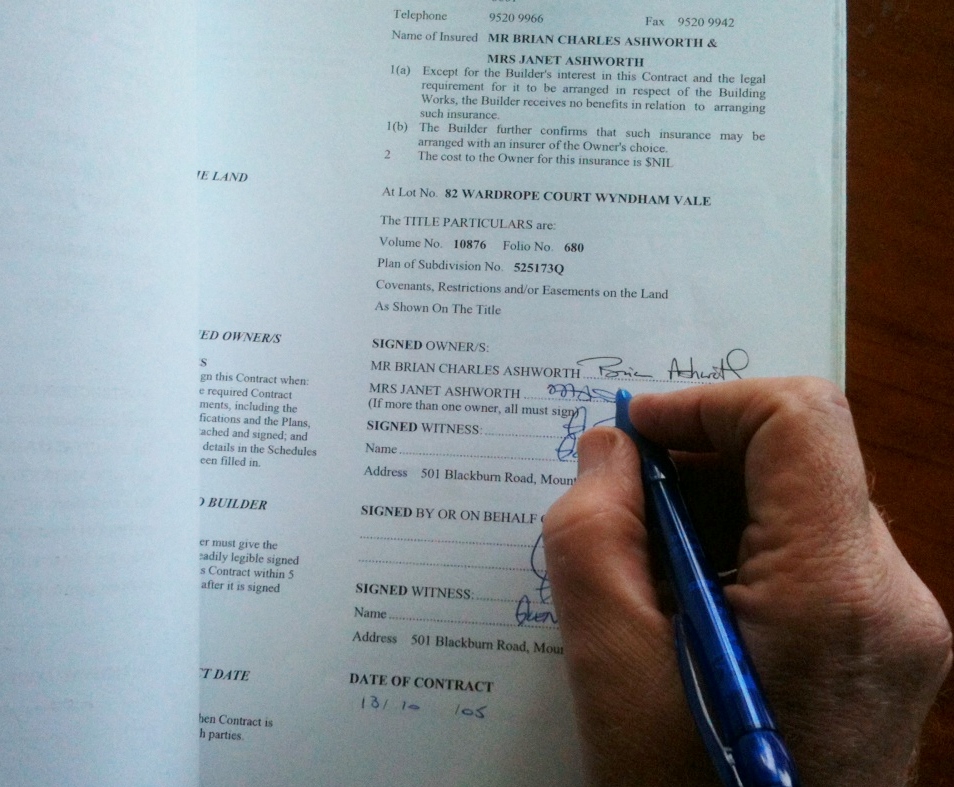Some people think that when they pay an initial deposit, and leave the Builders Sales Office they know how much their house will cost…………..If you are unlucky, and/or don’t know how the system works you could be hit for unexpected costs in the order of tens of thousands of dollars.
These are the times when you find out about costs:
Initial Deposit
Unless you ask at this stage all you will know is the basic house price.
It will pay to spend sometime asking about what any alterations to the plan, brick and roof choices, and upgrades will cost.
Although you will get some information it is unlikely to be complete.
Pre-Contract
When you find out about site costs including:
- Any Excavation /Fill
- Additional Foundation Costs.
- Restricted Site Costs – Generally for Demolish and Rebuild, and Battle Axe projects.
- Potential Rock Cost.
You should also get the costs of any structural changes.
If you have got a flat site with good soil the extra costs can be minimal, an additional $5,000 wouldn’t be unusul for a typical site. If you have a difficult site it might be an extra $30,000 or more.
Selection*
The stage when you make all the “little” alterations such as:
- Electrical fit out
- Heating
- Bathroom Fittings
- Kitchen Fitings
- Etc, Etc.
Be very careful at this stage, if you go for minor upgrades to the standard fit-out it could increase the costs by $1-2,000. Try to duplicate the Display Home and you can increase the base costs by 50%.
For more details why not get the Selection/Pre-Start Guide for only $4.
*Some Builders don’t do the selection of final fittings until the Pre-Start Meeting (after you have signed the Contract)
Contract
You will get an ‘Overall Build Cost” of the build with the site costs, together with all your amendments and upgrades.
A few things to check that might change the cost are:
- Provisional Sums-Typically rock or Concrete piers
- Prime Cost Items – Unusual items the contractor hasn’t been able to price.
- Cost of Service Connections – Normally the contractors price will cover a distance of 5-6m. If you have a larger setback you may be charged separately.
Completion
This is the time when you find out what the total payments to the builder will be.
Unless you have made a number of Post Contact Variations, or the Provisional Sums haven’t been enough for the conditions encountered, it should be very close to the Contract Sum.
6 Months Later
I don’t know about you but I find there are lots of costs when I move into a new house.
For the first couple of weeks I seem to visit Bunnings at least every day for picture hooks, toilet roll holders, door hooks etc. etc.
Some of the bigger costs are:
- Additional paths
- Clothes hoist
- Plants, and turf if you want an instant lawn
- Curtains
For help with Pre-Start/Selection see the anewhouse Guide
